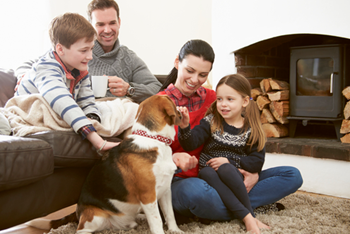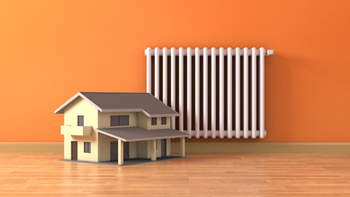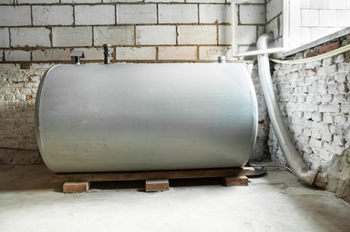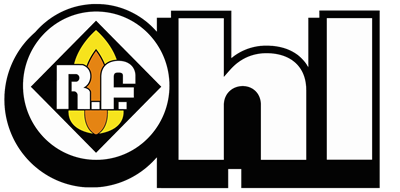Don’t Gamble With Bad Fuel Oil Delivery In PA
 If you are in need of a trusted and reputable company to handle your fuel oil deliveries in Tamaqua PA and surrounding areas, contact R.F. Ohl. We provide high-quality fuel at the lowest prices available.
If you are in need of a trusted and reputable company to handle your fuel oil deliveries in Tamaqua PA and surrounding areas, contact R.F. Ohl. We provide high-quality fuel at the lowest prices available.
R.F. Ohl also offers HVAC services.
If you need your HVAC system maintained or repaired, one of our NATE certified HVAC technicians could help. We take pride in being one of the best home comfort specialists in the area.
All of our services are affordably priced and your satisfaction is guaranteed. To schedule an appointment, give us a call today.
How An Oil Heat System Works
Contents
When the temperature in your home drops below the setting on the thermostat, the thermostat will send a signal to your heating system that it needs to kick on to reach the set temperature. When this happens, your heater distributes heat throughout the home.
How this happens depends on the type of heating system that you have. The heat can pass steam through the radiators, warm air through vents, and hot water through the baseboards. In this article, you will learn more about the different types of heating oil systems.
Types Of Oil-Fired Heating Systems
 There are two main types of oil-fired heating systems available…
There are two main types of oil-fired heating systems available…
warm air and water-based systems. Water-based systems use steam or water. Hot air systems distribute heated air throughout the home. The hot air is pushed through the house using ducts, blowers, and vents that are found on your floors or in your walls. As the heater delivers the hot air, the return duct will blow cold air back into the heating system. This process is what creates a heating cycle.
Water-based systems start by heating water in a cast iron boiler or a steel boiler. Next, the boiler disperses the hot water throughout the home in either a liquid or a gas form. A hot water system will circulate the hot water through the radiators or the baseboards to keep the house warm. Steam systems heat the water until it is turns into gas. The steam then travels through the pipes to the radiator.
Main Components Of An Oil Heating System
There are a few components that make up an oil-fired heating system. These include:
Heating Oil Tank
 The location of the heating oil tank depends on the design. A tank’s location is either below ground or above ground. Some oil tanks are outdoors, and others are indoors. Wherever the tank’s placement is, it is necessary to check the tank regularly for corrosion and leaks.
The location of the heating oil tank depends on the design. A tank’s location is either below ground or above ground. Some oil tanks are outdoors, and others are indoors. Wherever the tank’s placement is, it is necessary to check the tank regularly for corrosion and leaks.
When it comes to the oil that you put in your tank, you should only order high-quality fuel. If the oil is good quality, it will contain fewer impurities. It is these impurities that can cause the buildup of sludge in the tank. Over time, excess sludge build-up can reduce the lifespan of the oil tank. You may have to pay a few more cents per gallon for high-quality home heating oil delivery. However, it is worth it in the long run.
Burners
When your heater is running, the heating oil will move from the tank to the burner. To be sure that the heating oil ignites when it is inside the combustion chamber, you need a properly functioning burner. It will atomize the oil and then mixes it with the oxygen in the air.
Heat Exchanger
When the mixture of air and oil ignites…
the flame heats the heat exchanger which is a series of metal tubes. The heat exchanger is an excellent heat conductor. Therefore, it stays hot for a long time. In addition, the return duct in the system will pass cold air back to the heat exchanger. This process is how the air is heated.
Blower
The blower system of the furnace distributes the heated air throughout the ductwork, which runs throughout the home. This process will keep the entire house warm while the heat is on.
Flue
When heating oil burns, it releases carbon monoxide and other gases that are poisonous. Carbon monoxide is a byproduct of combustion. It happens with all heating fuels including natural gas, propane, and kerosene.
For your protection, your oil heating system has a flue pipe. It is responsible for releasing the gases outside of the home, which will make the air quality inside, safe. While the flue can keep the house safe, you should also install a carbon monoxide detector to let you know if the venting process is not functioning correctly. If the air quality is dangerous, the carbon monoxide detector will alert you.
Carbon Monoxide Detectors
Typically, heating oil systems will produce signs to let you know that carbon monoxide is present. However, you should still have a carbon monoxide detector in the home. In addition, whether or not you use heating oil to heat your home, you should always have a carbon monoxide detector. All types of home heating systems are susceptible to a carbon monoxide leak.
Maintenance
To be sure that your heating system is in perfect and safe working conditions…
you should make an appointment with an HVAC tech to perform regular maintenance checks.
Fuel Oil Delivery Tamaqua PA
The two most common types of oil-fired heating system are water-based and hot air based systems that use either water or air to heat the home. When the air or water is heated, it will be distributed throughout the house using pipes, vents, or ductwork. The main components of an oil-fired heating system include:
- The oil storage tank
- The burners
- The heat exchanger
- The blower
- The flue pipe
To ensure the safety of the people who live in the home, you should have carbon monoxide detectors installed throughout the house. You should also hire an HVAC tech each year to clean, inspect, and repair the heating system. Finally, when you are choosing a heating oil companies near me with the best prices, be sure to work with a reputable fuel oil delivery near me.
R.F. Ohl offers excellent fuel deliveries, the best local fuel oil prices, and highly professional HVAC services. All of our prices are affordable and we also guarantee our work. Call today to schedule an appointment.
Some of the areas we service include: Barnesville, Coaldale, Lansford, Quakake, Summit Hill, Tamaqua and these zip codes: 18214, 18218, 18232, 18245, 18250, 18252 as well as all surrounding areas in Schuylkill County, PA.
Contact us today or give us a call at (610) 377-1098 if you have any questions.
